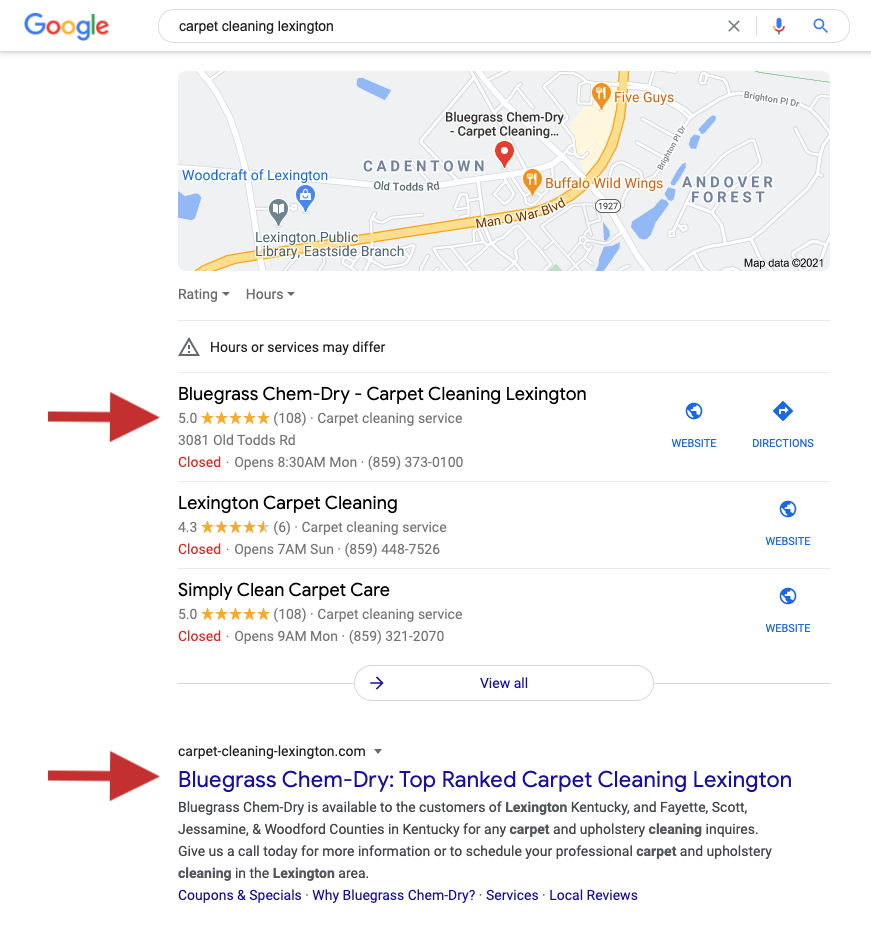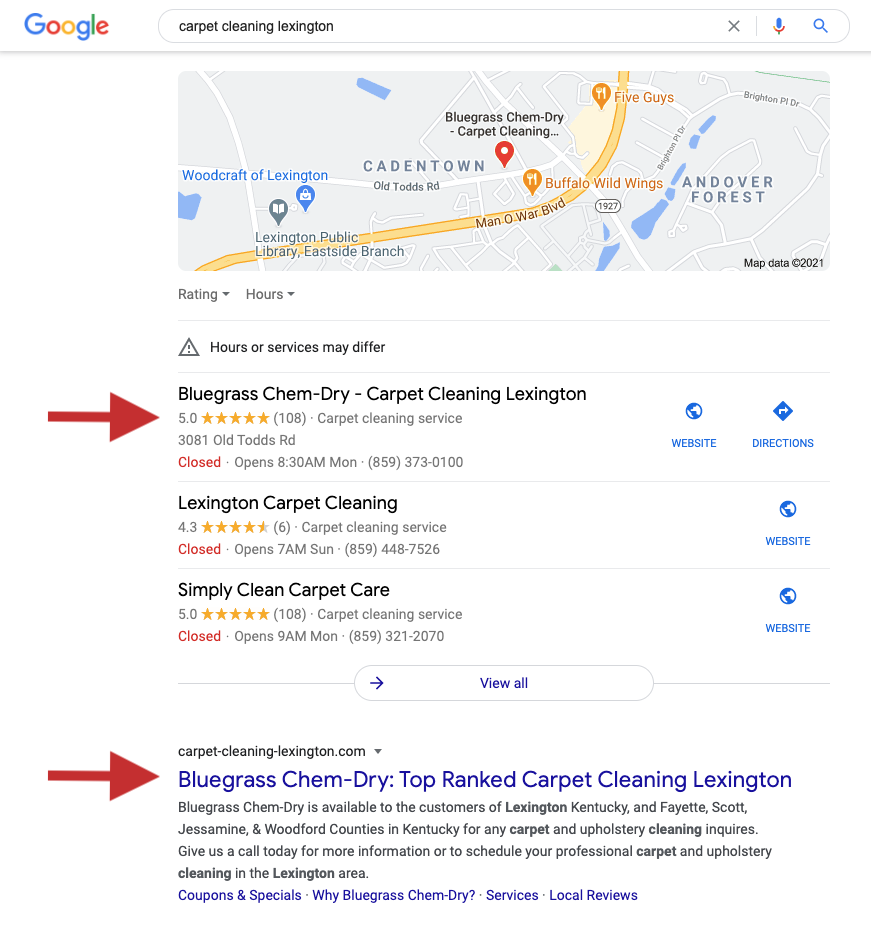
Purchasing Technical Products
Understanding the jargon of local SEO can be quite challenging for business owners who are not acquainted with this field.
To help you navigate this complex landscape, here are some key terms that every small business owner should know:
- Local SEO: This is a branch of SEO that focuses on optimizing a business’s online presence to attract more business from relevant local searches. These searches take place on Google and other search engines.
- NAP (Name, Address, Phone Number): NAP refers to a business’s name, address, and phone number. Consistent NAP information across all online platforms is crucial for local SEO, as search engines value this consistency when ranking websites.
- Citations: A citation is any online reference to a business’s NAP. It doesn’t need to link back to the business’s website. Consistent citations can help improve a business’s local search engine rankings.
- Local Pack (or 3-Pack): This is a section of Google’s search results that shows the top three local businesses that match a user’s search. Being listed in the Local Pack can lead to increased visibility and traffic.
- Google My Business (GMB) now Google Business Profile (GBP): GBP is a free tool from Google that lets businesses manage their online presence across the search engine. It’s essential for local SEO because it helps businesses appear in local search results and Google Maps.
- Reviews and Ratings: These are evaluations left by customers on platforms like Google, Yelp, and Facebook. Positive reviews and high ratings can improve a business’s local search engine rankings and attract more customers.
- On-Page SEO: This refers to the practice of optimizing individual web pages in order to rank higher and earn more relevant traffic in search engines. It involves aspects like keyword optimization, meta tags, and content quality.
- Backlinks: These are links from one website to another. In the context of local SEO, backlinks from high-quality, local websites can help improve a business’s search engine rankings.
- Organic SEO: Unlike local SEO, which focuses on reaching local customers, organic SEO aims to reach a broader audience by targeting keywords and phrases that aren’t necessarily tied to a specific location.
- Mobile Optimization: This is the process of ensuring that visitors who access your site from mobile devices have an experience optimized for the device. With the increase in mobile searches, it’s crucial for local SEO.
Understanding these terms is the first step towards effectively leveraging local SEO services for your small business. Remember, the goal of local SEO is to make your business visible to prospective customers in your area. By implementing the right strategies and using the right services, you can significantly increase your business’s online visibility and customer base.
Distinguishing Between Lead Generation Services and Local SEO Services
While both local SEO services and lead generation services are integral aspects of digital marketing, they are not the same and serve different purposes. Here’s a closer look at how they differ and how they work together to bolster your business’s online presence and sales.
Lead Generation Services
Lead generation is the process of attracting and converting strangers and prospects into someone who has shown interest in your company’s product or service. Some examples of lead generators are job applications, blog posts, coupons, live events, and online content. These lead generators offer value in exchange for a potential customer’s contact information.
Lead generation services are typically provided by marketing agencies that specialize in identifying and cultivating potential customers for businesses. They utilize a variety of strategies and tools to generate leads, including but not limited to:
- Email Marketing: This involves sending targeted emails to prospective customers who have shown interest in your product or service.
- Content Marketing: This includes creating and promoting valuable content that attracts and engages an audience, ultimately driving them to take a desired action.
- Social Media Marketing: This leverages social media platforms to reach and interact with potential customers, encouraging them to learn more about your business.
- Paid Advertising: This involves paying to place your business’s message on digital platforms, such as social media networks and search engines.
- Search Engine Marketing (SEM): This includes strategies to increase your business’s visibility on search engine results pages, primarily through paid advertising.
The main goal of lead generation services is to fill the sales funnel with qualified leads that the sales team can then nurture and convert into customers.
Local SEO Services
On the other hand, local SEO services focus on improving a business’s visibility in local search results on search engines. When users perform a search for a local business or for a product or service near them, search engines like Google use their location to display results from businesses in their area. Local SEO aims to ensure your business appears prominently in these local search results.
As previously discussed, local SEO services involve several key strategies and components:
- Google Business Profile Optimization: This involves setting up and optimizing your Google My Business profile to improve your business’s visibility on Google.
- NAP Consistency: This involves ensuring that your business’s name, address, and phone number are consistent across all online platforms.
- Local Citations: These are online references to your business’s name, address, and phone number. More citations can improve your local search engine rankings.
- Local Keyword Optimization: This involves using keywords that are relevant to your local audience in your website content and metadata.
- Online Reviews and Ratings: Encouraging and managing customer reviews on platforms like Google and Yelp can significantly impact your local search rankings.
- Local Link Building: This involves acquiring backlinks from other local businesses and organizations to improve your search engine rankings.
The primary goal of local SEO services is to increase visibility in local search results, attract more local customers, and increase local sales.
How They Work Together
While lead generation and local SEO services serve different purposes, they work together to enhance your business’s online marketing strategy. Local SEO services can help drive local traffic to your website, while lead generation services can convert that traffic into qualified leads. The combination of both can lead to increased local visibility, more leads, and ultimately, more sales.
In summary, understanding the differences between these services and how they can complement each other is crucial for developing a robust and effective digital marketing strategy for your small business.
The Importance of Marketing Strategy, Benchmarking, and Measurement in Purchasing Local SEO Services
In the world of digital marketing, one can’t stress enough the importance of a solid marketing strategy, benchmarking, and measurement, especially when purchasing local SEO services. As a small business owner, understanding these concepts can provide a roadmap for your online marketing efforts, ensuring you get the most out of your investment in local SEO services.
The Role of a Marketing Strategy in Local SEO
A well-defined marketing strategy serves as a guide to achieving your business goals. It outlines the steps you need to take and the resources you’ll need to leverage to reach your target audience effectively and convert them into loyal customers.
When it comes to local SEO, a solid marketing strategy can help you:
- Define Your Target Audience: Understanding who your ideal customers are, what they want, and how they search for products or services like yours online is crucial. This information informs your local SEO tactics, helping you to attract and retain the right customers.
- Determine Your Unique Selling Proposition (USP): Your USP is what makes your business unique. It’s what differentiates you from your local competition. Highlighting your USP in your local SEO efforts can help you stand out in local search results.
- Set Clear Goals and Objectives: What do you hope to achieve with local SEO? More website traffic? More store visits? Higher rankings in local search results? Setting clear, measurable goals can guide your local SEO efforts and help you measure success.
Benchmarking and Its Significance
Benchmarking involves comparing your business’s performance against your competitors or industry standards. It’s a valuable practice that helps you identify your strengths, weaknesses, and opportunities for improvement.
In the context of local SEO, benchmarking can involve:
- Competitor Analysis: This involves identifying who your main local competitors are and what local SEO strategies they’re using. Understanding your competition can provide insights into what works and what doesn’t in your market.
- Keyword Benchmarking: This involves identifying which keywords your competitors are ranking for and comparing them to your own. This can help you discover new keyword opportunities.
- Performance Benchmarking: This involves comparing your local search rankings, website traffic, and conversion rates to your competitors or industry standards. This can help you identify areas of your local SEO strategy that need improvement.
Measurement: The Key to Continuous Improvement
Measurement is a crucial component of any successful marketing strategy. Without it, you won’t know whether your local SEO efforts are working or if you’re achieving your goals.
Key metrics to track when purchasing local SEO services include:
- Local Search Rankings: Where does your business rank in local search results for your target keywords?
- Website Traffic: How many visitors are you getting to your website from local search results?
- Conversion Rate: What percentage of your local website visitors are converting into customers?
- Customer Reviews and Ratings: What are customers saying about your business online? How many reviews do you have, and what is your average rating?
- Local Citation Consistency: Is your business’s name, address, and phone number (NAP) consistently listed across all online platforms?
By regularly measuring these metrics, you can assess the effectiveness of your local SEO efforts, make data-driven decisions, and continuously improve your strategy.
In conclusion, a well-defined marketing strategy, combined with benchmarking and ongoing measurement, is essential when purchasing local SEO services. These elements will help you make the most of your investment, driving more local customers to your business and contributing to your long-term success.




